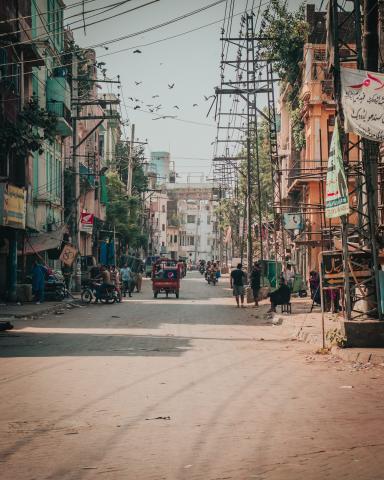Rebuilding the social compact: Urban service delivery and property taxes in Pakistan
-
Shaukat-et-al-Policy-brief-January-2022.pdf
PDF document • 122.02 KB
- If citizens perceive little benefit from their tax payments, or if local services are disconnected from local decision-making, the social compact between citizen and state can be broken, thus creating a vicious cycle of low quality services, low levels of local tax revenue, and lack of trust in the state.
- This study, conducted with neighbourhoods in two of the largest cities in Punjab – Lahore and Faisalabad – examines how communication and tax-allocation interventions can help break this cycle.
- Citizens in these neighbourhoods were given the opportunity to better understand and express their preferences for local urban services and to link the provision of these services with the amount of local taxes paid.
- Despite successfully drawing out preferences and service delivery, the study found that most citizens were unaware of being in a special scheme or having received greater local goods.
- The government must ensure service delivery happens at a faster pace and accompany delivery with better messaging to increase clarity amongst citizens.




